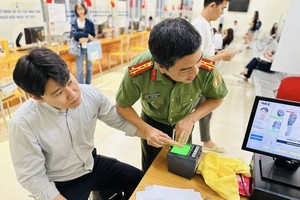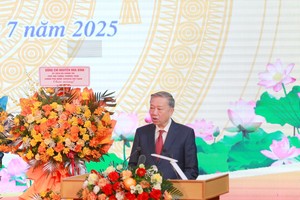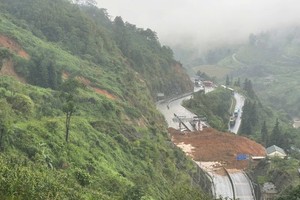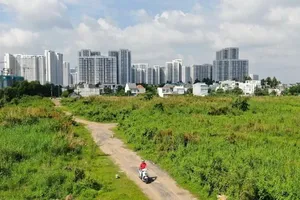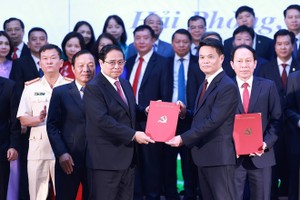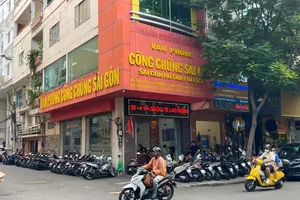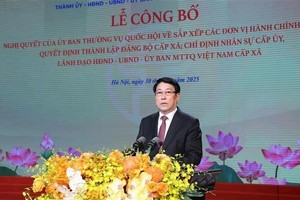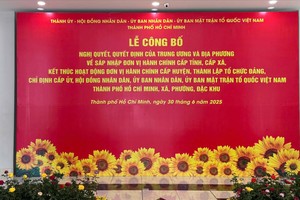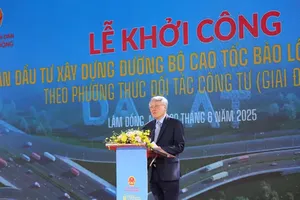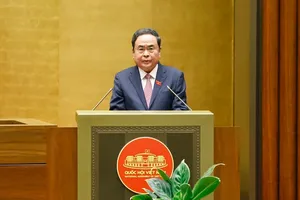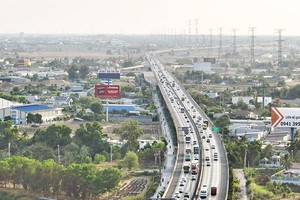Vietnam’s State Bank and the World Bank signed Tuesday one loan and four credits totaling US$620 million in support of the country’s development efforts.
The funding will be used to finance five operations, namely Hospital Waste Management Support Project (US$150 million), Hai Phong Urban Transport Project (US$175 million), the third operation for Program 135 – 2 (US$50 million), additional financing for the Second Transmission and Distribution Project (US$180 million) and Coastal Cities Environmental Sanitation Project (US$65 million).
“Vietnam’s ten-year Socio Economic Development Strategy 2011-2020 recognizes that the country faces challenges in institutional reforms, as well as huge infrastructure gap and constraints to environmental sustainability,” Victoria Kwakwa, Country Director for the World Bank in Vietnam, said in a statement on the signings.
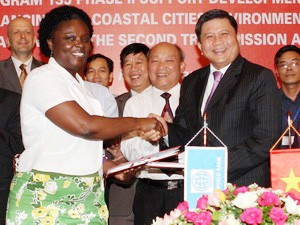
Ms. Kwakwa added in Tuesday’s announcement, “The loan and credits signed today are expected to help with necessary infrastructure development, provide support to Government to modernize its approach to infrastructure development and management, address important environmental challenges, and recognizing the government’s reforms in pro-poor policies.”
The signings include a loan of US$180 million from the IBRD, the World Bank’s lending arm for middle-income country, to scale up and reinforce the country’s electricity transmission system.
The International Development Association, the WB part that helps the world’s poorest countries, provides the four other credits.
The WB said a sum of US$65 million as additional financing for the Coastal Cities Environmental Sanitation Project would provide better sanitations for over 600,000 people in the coastal cities of Dong Hoi, Quy Nhon and Nha Trang. The investment will improve overall quality of life and ensure the sustainability of the tourism economic base of these cities.
The project is expected to achieve these goals through improved drainage, wastewater collection and treatment, solid waste management, small loans for household sanitation improvements and capacity building initiatives including Healthy City Partnerships, the lender added.
The goal of the Hai Phong Urban Transport Project is to improve urban accessibility and strengthen capacity for urban transport management and planning in Hai Phong City in the north, according to the WB.
The project is expected to reduce travel time for local road users in arterial corridors, and increase the reliability and frequency of bus services. IDA will invest US$175 million in this project, said the WB.
The US$50 million credit for Program 135 – Phase 2 is the last in a series of three policy operations which has contributed to successful reforms implemented by the Government under its “Program for Socio-Economic Development in Communes Facing Extreme Hardship in Ethnic Minority and Mountainous Areas”, popularly known as P135-2.
The final credit will support remaining policy reforms to strengthen implementation, particularly at sub-national levels, as well as enhance the sustainability of the reforms, according to the WB.
As for the final of the five signings, the WB said the successful implementation of the Hospital Waste Management Support Project would strengthen health care waste management policies nationwide and support at least 150 central and provincial hospitals in providing better environment for their communities as well as improved infection control and occupational safety to patients, doctors and health workers.
IDA will fund US$150 million for this project, said the WB.
